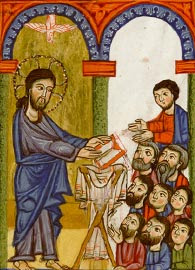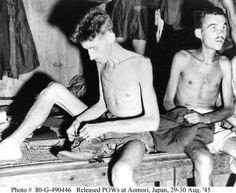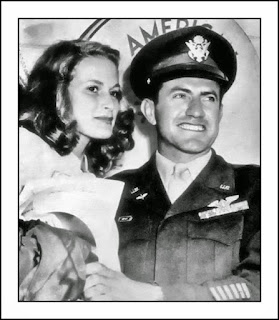___________________________________
We have a lot of ground to cover with this weekend’s deep and provocative readings.
Today
we are getting a snapshot of what mercy looks like in our salvation history and
God’s hand in it. These are shocking and beautiful images of God’s mercy for us
all.
First,
from the book of Nehemiah, we follow the Israelites out of their Babylonian
exile with the help of their Persian liberators who are called by God to help
with the restoration of Israel. This all happened around 5 BC;
25-hundred years ago.
As the
Jews return from exile to their homeland, the people ask their priest and
scribe Ezra to read for them the scroll of the Law of Moses.
As
they hear the law, they are reminded of what each is called by God to do: put
aside human instincts for selfishness, self-destruction, anger and hatred, and
replace them with God’s command to love.
In
their tears, the Israelite people realize that God’s law was never designed to
condemn people, but to teach and lead them to a better way to live. Their tears
come from the Word of God convicting their hardened hearts as they are made new
again.
Aren’t
we all asked to have this same conversion each time we come to Mass and receive
the eucharist? As people of God, shouldn’t our behavior toward others
(especially those on the margins) reflect God’s mercy for us all?
Next
we read from the first Letter of St. Paul to the Corinthians. We hear portions
of Corinthians at many weddings: "Love is patient, love is
kind.”
Today’s reading is the preamble to this
important passage in First Corinthians 13, a letter of mercy to a community
that was failing to do what St. Paul had originally instructed them to do.
They were acting out of selfishness and arrogance toward each other, especially
the have-nots.
Paul
finds out how this community is marching down the wrong path and causing
division and rancor. He writes them a beautiful letter soaked in love to
gently scold this bad behavior (I always chuckle about that fact when it’s
being read at a wedding).
Today,
St. Paul uses the analogy of the body to promote the importance of unity and diversity in the Corinthian community. This is a sign of God’s mercy in our Church today.
Unity. Diversity.
Today
Paul is reminding us that every disciple of Christ has a place at the table.
Every disciple of Christ has a gift to be shared by his or her community. We
are all a part of the Body of Christ. There are no lesser Christians.
How
apropos for today’s Catholic, Christian or larger world faith community,
especially for people who try to stake out ground as living as perfect
followers of God, condemning others for not living or worshipping the way they
do.
God
and St. Paul are reminding us today: never fall into this trap, because this
trap is not of God.
Disharmony,
discord, rancor are not of the Lord.
Only
love, harmony and peace are.
Do we
sometimes fall into this trap in how we act as Catholics? Do we sometimes think
we are living perfect Christian lives by condemning others we think are not? Do
we honor the unique diversity found in the body of Christ?
Then we come to my favorite Gospel writer Luke. Yes, we are in the Year of Luke, the so-called Gospel of Mercy.
Pope
Francis has called for mercy in the Church since the beginning of his
pontificate in 2013. This has caused alarm for some Catholics. They worry he’s
ruining the Church.
Take
as a case in point the action a few years back to change the Roman Missal to
officially allow the washing of women’s feet on Holy Thursday (We’ve done that
in our parish community for years!).
If you
want to see rancor, disharmony and discord among Catholics opposed to this
change just log on to the comment sections of articles about the move.
You
would think we are a faith at war.
This
war has many sides, including ardent supporters of Pope Francis who would use
his words and actions as tool to beat those who disagree with the Holy Father. We
are all the body of Christ.
At
times, we all forget the words from St. Paul, “[love] is not pompous, it
is not inflated, it is not rude…”
This
is exactly Jesus’ point in today’s Gospel. Jesus is reminding us that
pious sanctimony at the exclusion of those on the peripheries in the world is
not what God commands.
Jesus returns home to Nazareth, a place where he’s known simply as a carpenter’s son and shocks the people with his words.
Jesus
is announcing good news to the poor, the blind, those in captivity, the oppressed
and marginalized – the outcasts of the people.
In
quoting the prophetic words of Isaiah, he officially launches his public
ministry by proclaiming the Scripture passage fulfilled in their hearing.
Boy,
to be a fly on the wall in that synagogue?
We’ll
hear next week how all heck broke out after he said that and sat down.
His
words provoke ire. And turn the townsfolk’s initial welcome of their hometown
boy into hostile rejection.
As one
bible scholar puts it: “Some speak highly of Jesus, while others are filled
with resentment.”
Isn’t that what Pope Francis’ actions are doing to some in our Catholic faith – causing rejection to the Pontiff’s call to all Catholics to lead with mercy?
As a
people of faith, we are called to adhere to the command of love, no matter how
we feel about Pope Francis and his actions or each other.
We
need to lead with mercy with everyone we encounter. Even those whose opinions
we disagree with.
After all,
“Jesus forgave even those who crucified and scorned him” from the cross.
May God continue to bless us as we step out of the captivity of the sin of division, magnify our gifts as members of the Body of Christ and live as a people of mercy as we "proclaim a year acceptable to the Lord."
____________________________________________________________
Hoy estamos recibiendo una muestra de la misericordia
en nuestra historia de salvación. Y la mano de Dios en ella.
Estas son imágenes impactantes y hermosas de la
misericordia de Dios para todos nosotros.
Primero, del libro de Nehemías, seguimos a los
israelitas fuera de su exilio babilónico con la ayuda de sus libertadores
persas que son llamados por Dios para ayudar con la restauración de
Israel. Todo esto sucedió alrededor del
año 5 a.C.; Hace 25-cien años.
Cuando los judíos regresan del exilio a su patria, el
pueblo le pide a su sacerdote y escriba Esdras que les lea el rollo de la Ley
de Moisés.
Al escuchar la ley, se les recuerda lo que Dios llama
a hacer a cada uno: dejar de lado nuestros instintos humanos de egoísmo,
autodestrucción, ira y odio, y reemplazarlos con el mandato de Dios de amar.
Así es como se ve la misericordia.
En sus lágrimas, los israelitas se dan cuenta de que
la ley de Dios nunca fue diseñada para condenar a las personas, sino para
enseñarles y guiarlas hacia una mejor manera de vivir. Sus lágrimas provienen
de la Palabra de Dios convenciendo sus corazones endurecidos a medida que los
hace de nuevo.
¿No se nos pide a todos que tengamos esta misma
conversión cada vez que venimos a Misa? Como pueblo de Dios, ¿no debería
nuestro comportamiento hacia los demás (especialmente hacia los marginados)
reflejar la misericordia de Dios para todos nosotros.
Me encanta la primera Carta de San Pablo a los
Corintios. Escuchamos partes de ella en muchas bodas: "El amor es
paciente, el amor es amable".
La lectura de hoy es la introducción a
este importante pasaje de Corintios, una carta de misericordia a una comunidad
que no estaba haciendo lo que San Pablo les había instruido originalmente que
hicieran. Actuaban por egoísmo y arrogancia el uno hacia el otro, especialmente
con los que no tenían.
San Pablo descubre que esta comunidad está marchando por
el camino equivocado con su división y rencor. Les escribe una carta empapada
de amor para regañar este mal comportamiento (siempre me río de ese hecho
cuando se lee en una boda).
San Pablo está usando la analogía del cuerpo para
promover la importancia de la unidad y la diversidad en la comunidad corintia.
Hoy San Pablo nos está recordando que cada discípulo de
Cristo tiene un lugar en la mesa. Cada discípulo de Cristo tiene un don que
compartir con su comunidad. Todos somos parte del Cuerpo de Cristo. No hay
cristianos menores.
San Pablo nos recuerda hoy, que nunca caigamos en esa
trampa, porque esa trampa no es de Dios. La falta de armonía, la discordia, el
rencor no son del Señor. Sólo el amor, la armonía y la paz lo son.
¿A veces caemos en esa trampa en la forma en que
actuamos como católicos? ¿A veces pensamos que estamos viviendo vidas
cristianas perfectas al condenar a otros que creemos que no lo hacen?
¿Promovemos la unidad o la desunión?
Luego llegamos a mi escritor favorito del Evangelio
Lucas. Sí, estamos en el Año de Lucas en la Iglesia Católica, el Evangelio de
la Misericordia.
El Papa Francisco ha pedido misericordia en la Iglesia
desde que se convirtió en Papa en el 2013.
Sus palabras han causado alarma a algunos católicos. Les preocupa que esté
arruinando la Iglesia.
A veces, todos olvidamos las palabras de San Pablo,
"[el amor] no es pomposo, no está inflado, no es grosero ..."
Este es exactamente el punto de Jesús en el Evangelio
de hoy. Jesús nos está recordando que la santidad piadosa con exclusión de los
marginados en el mundo no es lo que Dios ordena.
Jesús regresa a su hogar en Nazaret, un lugar en el que
es conocido simplemente como el hijo de un carpintero para la gente del pueblo
y los sorprende con sus palabras.
Jesús está anunciando buenas nuevas a los pobres,
ciegos, en cautiverio, oprimidos y marginados, los marginados del pueblo.
Al citar las palabras proféticas de Isaías, él lanza
oficialmente su ministerio proclamando el pasaje de las Escrituras cumplido, a
su audiencia.
Me encantaría ser una mosca en la pared de esa
sinagoga.
Escucharemos la próxima semana cómo estalló todo
después de que él dijo eso y se sentó.
Sus palabras provocan ira y convierten la bienvenida
inicial de sus compañeros de pueblo al chico de su ciudad natal en un rechazo
hostil. Deciden expulsar al Mesías de la ciudad e incluso estaban preparados
para arrojarlo por un acantilado, pero Jesús escapa a través de las multitudes
enojadas.
Como dice un erudito de la Biblia: "Algunos hablan
muy bien de Jesús, mientras que otros están llenos de resentimiento.
¿No es eso lo que las acciones del Papa Francisco
están haciendo a algunos en nuestra fe católica, causando rechazo al llamado
del Pontífice a todos los católicos a mostrar misericordia?
Como pueblo de fe, estamos llamados a adherirnos al
mandato del amor, sin importar cómo nos sintamos acerca del Papa Francisco y
sus acciones o entre nosotros. Estamos llamados a liderar con misericordia con
todos los que encontramos. Incluso aquellos con cuyas opiniones no estamos de
acuerdo.
Después de todo, "Jesús perdonó incluso a
aquellos que lo crucificaron y lo despreciaron".
Que Dios continúe bendiciéndonos a medida que salimos
del cautiverio del pecado de división, magnifiquenos nuestros dones como
miembros del Cuerpo de Cristo y vivamos como un pueblo de misericordia mientras
nosotros "proclamamos el año de gracia del Señor".













